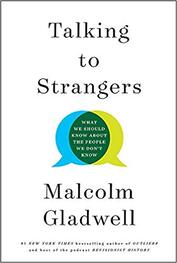 I recently listened to Malcolm Gladwell's audio book, Talking to Strangers thinking that he would give me strategies for improving this skill. Instead, Gladwell gives the reader/listener insight into why we humans get it all wrong when talking to strangers. His work has serious implications for teachers. Default to Truth: It's easy to say that we will treat all students with dignity and respect, yet when faced with a challenge Gladwell argues that we default to our perception of the truth. If this is so, then teachers need to take a hard look at their perceptions of children. If they think a child cannot perform based upon race, socio-economic status, or gender, then eventually this perceived "truth" will surface. People's actions and words speak for themselves, right? Gladwell calls this impulse transparency claiming that we believe that the actions and speech of others is transparent to us. This is not the case. Picture the teen who sits back in their chair, legs stretched out, hood pulled up over their head. It's easy to assume that this student is disinterested or disengaged from learning. In actuality, we don't have any idea what this teen is thinking. By assuming the teen to be disengaged it would then be easy for a teacher to default to truth and begin treating the teen in a hostile or confrontational manner. I encourage teachers to check, and if needed, reset their default beliefs about children. Here are two truths I was taught as a young teacher that have served me well:
0 Comments
Your comment will be posted after it is approved.
Leave a Reply. |
WelcomeLiving as an artist/researcher/teacher affords me the opportunity to work with creative artists, scholars, and teachers residing in the state of Michigan, the United States, and throughout the world. This site is dedicated to cultivating the energies created through these contacts and collaborations. Archives
August 2022
Categories |
 RSS Feed
RSS Feed